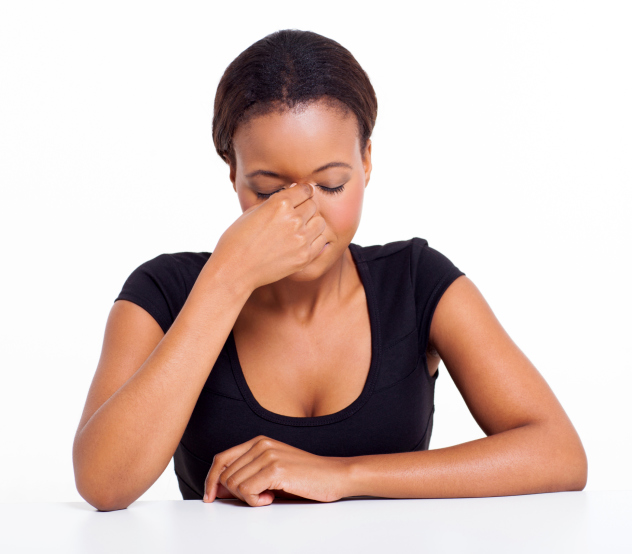 What comes to mind when you hear the term binge eating disorder? Overeating? An occasional binge? That irresistible feeling to dig in – no holds barred – during holiday festivities?
What comes to mind when you hear the term binge eating disorder? Overeating? An occasional binge? That irresistible feeling to dig in – no holds barred – during holiday festivities?
YOU MAY ALSO LIKE: Blacks & Binge Eating: 5 Facts To Start The Conversation
The reality is, binge eating disorder, also known as B.E.D., involves much more than overeating or the occasional binge during the holidays. In fact, these misperceptions may prevent adults and children from receiving the help they really need.
“B.E.D. is the most common eating disorder. But at the same time, it is the least talked about," Dr. Lesley Williams, a board-certified Family Medicine physician and a Certified Eating Disorder Specialist, tells BlackDoctor.org.
About 1.25% of adult women and 0.42% of adult men have binge eating disorder, according to the National Institutes of Diabetes and Digesitve and Kidney Diseases.
Symptoms of B.E.D commonly found in both adults and children, as Dr. Williams explains, include “eating an excessive amount to the point where you feel uncomfortably full,” “having a lack of control when eating,” and “feeling significant guilt and/or shame following a binge.”
Binge Eating Triggers in Black Americans
Studies show nine percent of the U.S. population, or 28.8 million Americans, will have an eating disorder in their lifetime and eating disorders are among the deadliest mental illnesses, second only to opioid overdose, according to ANAD (National Association of Anorexia Nervosa and Associated Disorders) an organization that provides support for anyone struggling with an eating disorder.
While eating disorders affect all demographics similarly, "People of color — especially African Americans — are significantly less likely to receive help for their eating issues”, according to the National Eating Disorders Association (NEDA).
Many Black women (and men) suffer in silence out of shame or not realizing they are experiencing more than overeating from time to time.
“Sometimes it may be something that is happening emotionally," says Dr. Williams about what may trigger binge eating specifically in African Americans.
"Oftentimes in the African American community, we don’t talk much about mental health. So, frequently, someone may be facing some kind of distress and not know how to manage it – instead of talking to someone about it, they look to food as a form of comfort.”
Dr. Williams shared that in her practice many patients don't talk about eating when they're stressed, feeling sad or dealing with unfamiliar emotions. "Many times, turning to food is more acceptable than [seeking] professional help, therapy, or even medication.”
When it comes to children, Dr. Williams says emotional stress and bullying can be major triggers in Black children."In some cases, we see children where they are one-of-a-kind, like the only African American in their environment – they feel out of place and may not have the words to communicate that, so they turn to food for comfort due to feeling like the odd man out,” Dr. Williams explains.
Another culprit? The role food plays in the Black community. This includes a history of food insecurity, poverty, and having to rely on fast food due to a lack of access to healthy foods.
“You have to think about what food means in Black American communities historically — we had scraps, and we had to make mosaics out of nothing,” Rachel Goode, an assistant professor in the School of Social Work at the University of North Carolina Nutrition Research Institute and an adjunct assistant professor in the Center for Eating Disorder Excellence, says.
“As Black Americans, we don’t want to waste food. We value being able to give large portions, we value being able to eat more than enough,” she says. “The first thing you hear about eating disorders is white women talking about ‘we don’t eat enough food’ and I think culturally, it’s just not really resonating.”
Treatments
How do you know when you should speak to someone about disordered eating or binge eating disorder? Dr. Williams recommends that, “If the situation has gotten to the point where it is impacting your daily life – distracting you at work – or causing you to gain a considerable amount of weight, you need to seek professional help."
She adds that while there may be core underlying issues causing you to overeat, there are several ways to identify and combat these issues such as getting with a dietician, medications, finding ways to become more active, and/or a multifaceted treatment plan.








